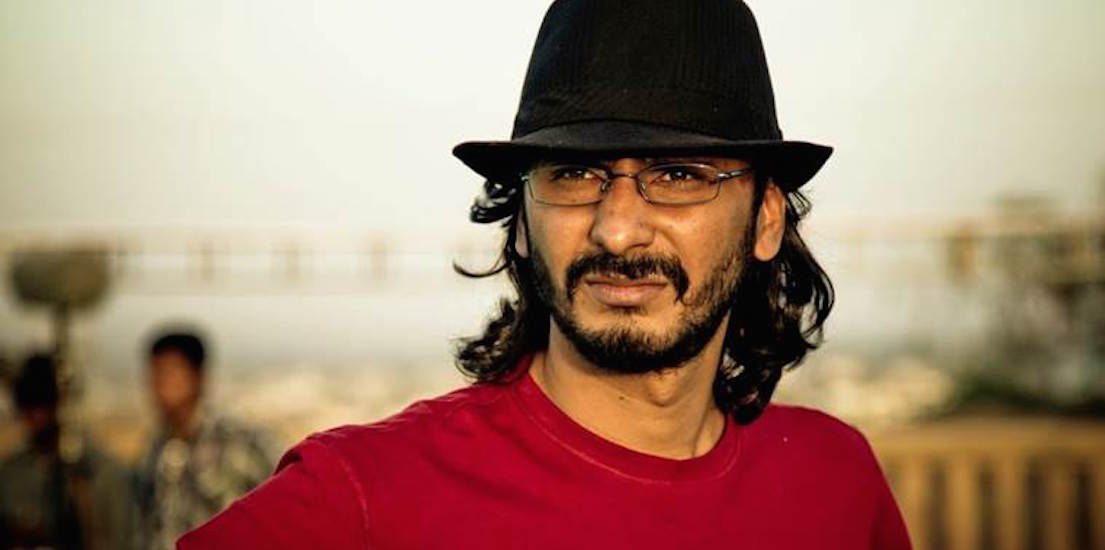Didn’t feel that Konkana was making her 1st film as director: Abhishek
Director Abhishek Chaubey and Casting Director Honey Trehan joined hands to start their own production house called MacGuffin Pictures. The production house, as Chaubey says, will focus on stories that they enjoy and want to see get made. Their first project under this banner is Konkana Sensharma’s recently released directorial debut film A Death in the Gunj.
In a conversation with Pandolin, Abhishek talks about his association with Honey, the purpose of turning producer and the experience of working with Konkana.

Abhishek Chaubey with Vishal Bhardwaj and Honey Trehan
From director to producer, what prompted this move?
As you know several directors that are working today are also producing their films, so I wouldn’t be the first one to do that (become producer). This move stems from the need to get a little more control in the films that you make, put your money where the mouth is and use money more efficiently. And you can do so, only if you’re in charge of it, that’s the reason I wanted to become producer. But it was not something that I could do alone. Thankfully I have Honey (Trehan). Between the two of us, he understands certain aspects of film production way better than I do. So I’m glad that he’s on board with me.
While we were talking about it (starting a production house) a few years back, it was at that time that Konkana’s script came to us. We really liked it and she was also looking for a studio to back her film, and it just so happened that we started the company and could make the film.
Read: Backing a film is the best thing a producer can do : Deepshikha Deshmukh
How did the association with Honey Trehan happen?
Honey and I have been friends for a long time. We started together in the industry by assisting Vishal Bhardwaj. We have worked together a lot. Since I started making films, Honey has been the Second Unit Director for my films and has been casting for them, so the association goes back a long way. It was just a natural progression for both of us.
Festivals make the markets aware that such a film director / production company is present, making the opportunities for sales get much better
As producer, what is it that you will look for in a script to back?
Our primary intention is to make our films and to do the production for those films. Honey is also turning director, he will be making his first film by the end of this year and I’m also coming up with my next film. So the primary reason to turn producer is so that we can make our own films. Not that we will not be producing other people’s films at all, we will definitely do that between the films that we are making.
What we really want to look for, while doing anything, are scripts and stories that we enjoy and we would like to see get made, which we can hopefully find a way to produce, sell and market, and hope for returns. Because as a film company we have to do that, we have to make movies that make sense financially as well. However at the same time, we look for anything that is interesting, fun and good filmmaking. The little that I do know about each other (Honey and myself), is that we won’t do anything just for the sake of it.
Read: Onir’s Fundamentals for every Film Producer

A still from A Death in the Gunj
When it comes to A Death in the Gunj, it traveled to several festivals and is now getting a theatrical release, which seems to be the approach for a lot of films. Was this a planned move?
For sure. While we were making the film, we were targeting the festivals that we could break into. It was definitely a film that all of us thought had the potential to reach out to a huge audience. It was a film that had the potential to be seen by a non-diaspora audience as well. The film went to the Toronto International Film Festival in the Special Presentation Section, where it was screened in the Elgin Theatre, which is like an Opera theatre with a capacity of 1600 – 1800 people. And we had a full theatre! All us of were so pleased. It also went to Busan and several other festivals.
I think it’s great because festivals, apart from giving exposure to the film and filmmaker, also make the markets aware that such a film director / production company is present, making the opportunities for sales get much better. It helps the industry to grow, helps them to find audiences other than Indians or South Asians abroad.
Post the festivals, we got a nice window to release the film, so we agreed and went ahead.
The move to become producer stems from the need to get a little more control in the films that you make, put your money where the mouth is and use money more efficiently
Being a director yourself, did you help Konkana creatively while she was directing the film?
Konkana is extremely confident as a person and she understands film technique and performances very well. She’s written the film so she knew the script in and out. She had some incredible visual ideas and knew exactly how she wanted the film to look and so on. So, even if I thought that I am going to be contributing to the film, it would have been totally redundant. She doesn’t need any hand holding as far as the creative aspect is concerned. However, the few times that she did want some creative suggestion or opinion, I was happy to to help. At no point did we feel that Konkana was making her first film as a director.



